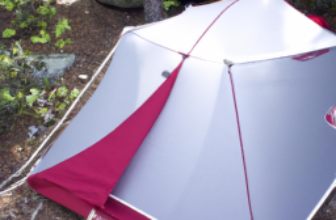Are you planning a camping trip and can’t decide what kind of camping stove to bring along? Don’t worry, we’ve got you covered! Choosing the right camping stove can make a huge difference in your outdoor cooking experience, so it’s important to choose one that suits your needs. In this article, we’ll discuss the different types of camping stoves available and help you determine which one is the best fit for you. So, let’s dive in and find the perfect camping stove for your next adventure!
When it comes to camping stoves, there are several options to choose from. The most common types include canister stoves, liquid fuel stoves, and wood-burning stoves. Canister stoves are popular for their convenience and portability, using pre-filled fuel canisters that are easy to attach and control. Liquid fuel stoves, on the other hand, offer more versatility and are great for longer trips where fuel availability might be an issue. Lastly, wood-burning stoves are a natural and eco-friendly choice, as they rely on wood as fuel. Each type has its own pros and cons, and in the next paragraphs, we’ll go into more detail about each one.
In the next paragraphs, we’ll delve deeper into each type of camping stove, discussing their features, advantages, and disadvantages. Whether you prioritize portability, ease of use, or fuel availability, we’ll help you make an informed decision. So, if you’re eager to find out which camping stove is the perfect match for your outdoor adventures, keep reading this article. By the end, you’ll have all the knowledge you need to choose the right camping stove that will make your outdoor cooking experiences a breeze. Get ready to level up your camping game with the perfect camping stove! When planning for a camping trip, one of the most important items to consider is a camping stove. Whether you’re a seasoned outdoors enthusiast or a beginner camper, having a reliable stove can make a world of difference in your camping experience. With so many options available on the market, it can be overwhelming to choose the right type of camping stove for your needs. In this article, we will explore the different types of camping stoves, their advantages and disadvantages, popular brands, and factors to consider when making a decision.
Types of Camping Stoves
Propane Stoves
Propane stoves are one of the most popular types of camping stoves due to their convenience and ease of use. These stoves run on propane gas, which can be easily stored and transported in small, refillable canisters. Propane stoves typically come with a built-in ignition system, making it quick and simple to start a fire. The flame is adjustable, allowing for precise temperature control while cooking.
Advantages of Propane Stoves
One of the major advantages of propane stoves is their portability. They are lightweight and compact, making them ideal for backpackers and hikers. Propane stoves also offer a consistent heat source, making it easier to cook a variety of meals. They are quick to set up and require minimal maintenance, making them a popular choice among campers.
Disadvantages of Propane Stoves
One disadvantage of propane stoves is that they can be expensive to operate. The cost of propane canisters can add up over time, especially if you frequently go on camping trips. Another limitation is that propane stoves may not perform well in extreme cold weather conditions, as the propane gas can freeze or have reduced efficiency. Additionally, propane stoves produce carbon monoxide, so proper ventilation is crucial to prevent carbon monoxide poisoning.
Popular Propane Stove Brands
Some popular brands for propane stoves include Coleman, Camp Chef, and Eureka! These brands are known for their reliable performance, durability, and a wide range of features to suit different camping needs.
Liquid Fuel Stoves
Liquid fuel stoves, also known as multi-fuel stoves, are another type of camping stove that offers versatility in fuel options. These stoves can be powered by various liquid fuels such as white gas, unleaded gasoline, diesel, kerosene, and even jet fuel. Liquid fuel stoves are highly efficient and can perform well in extreme weather conditions.
Advantages of Liquid Fuel Stoves
One advantage of liquid fuel stoves is their fuel versatility. This means that you can use whatever liquid fuel is readily available, making them suitable for remote camping locations where specific fuel types might be hard to find. Liquid fuel stoves also provide a consistent heat output, allowing for reliable cooking performance even in cold weather. They are generally more fuel-efficient than propane stoves, making them a cost-effective option for long camping trips.
Disadvantages of Liquid Fuel Stoves
One downside of liquid fuel stoves is their complexity. They typically require more assembly and maintenance compared to propane stoves. Lighting and priming the stove can also be more involved, requiring some practice. Liquid fuel stoves tend to be heavier and bulkier than propane stoves, making them more suitable for car camping rather than backpacking. They can also be more expensive initially, as they often require additional accessories such as fuel bottles and maintenance kits.
Popular Liquid Fuel Stove Brands
Some popular brands for liquid fuel stoves include MSR, Primus, and Optimus. These brands are known for their durable construction, reliability, and ability to perform in extreme weather conditions.
Wood Burning Stoves
Wood burning stoves offer a traditional and rustic cooking experience while camping. These stoves use sticks, twigs, or small pieces of wood as fuel, eliminating the need to carry additional fuel supplies. Wood burning stoves are environmentally friendly and can be an excellent option for those who enjoy cooking over an open fire.
Advantages of Wood Burning Stoves
One of the major advantages of wood burning stoves is their fuel source availability. You can easily find sticks and twigs in most camping locations, making it a cost-effective option. Wood burning stoves also provide a natural and authentic cooking experience, allowing you to fully embrace the camping ambiance. They are generally lightweight and compact, making them suitable for backpackers.
Disadvantages of Wood Burning Stoves
One downside of wood burning stoves is the amount of time and effort required to gather fuel and start a fire. You will need to spend more time and energy collecting dry wood and building a fire compared to other types of stoves. Wood burning stoves also produce ash and smoke, which can be a concern if you’re camping in areas with strict fire regulations or if you have respiratory issues.
Popular Wood Burning Stove Brands
Some popular brands for wood burning stoves include Biolite, Emberlit, and Solo Stove. These brands are known for their efficiency in burning wood, compact designs, and minimal smoke production.
Electric Camping Stoves
Electric camping stoves are a less conventional option that might be suitable for certain camping scenarios. These stoves require a power source, such as a generator, car battery, or electrical hookup at a campground. Electric camping stoves are typically used for car camping or RV camping where access to electricity is readily available.
Advantages of Electric Camping Stoves
One advantage of electric camping stoves is their consistent heat output. Unlike other types of stoves that can be affected by external weather conditions, electric stoves offer reliable and precise temperature control. They also eliminate the need to carry or purchase fuel, making them a cost-effective option in the long run. Electric stoves are also quiet and produce no fumes, making them a more environmentally friendly option.
Disadvantages of Electric Camping Stoves
One of the main disadvantages of electric camping stoves is their dependency on a power source. If you’re camping in a remote or off-grid location, access to electricity may be limited or non-existent. Electric stoves can also be heavy and bulky, making them less suitable for backpacking or hiking.
Popular Electric Camping Stove Brands
Some popular brands for electric camping stoves include Camp Chef, Cusimax, and Ovente. These brands offer a range of electric stove options, from compact portable models to larger freestanding stoves.
Factors to Consider When Choosing a Camping Stove
Now that we have explored the different types of camping stoves, it’s essential to consider various factors when deciding which stove is right for you. These factors include the type of camping trip, cooking requirements, weight and portability, and budget.
Type of Camping Trip
The type of camping trip you are planning is a crucial factor in determining the most suitable stove. If you’re embarking on a backpacking trip, a lightweight and compact stove like a propane or wood burning stove would be more appropriate. On the other hand, if you’re car camping or RV camping, you have more flexibility in choosing a stove, and options like liquid fuel or electric stoves may be more viable.
Cooking Requirements
Consider your cooking requirements when selecting a camping stove. Do you plan on cooking elaborate meals with multiple pots and pans, or do you prefer simpler meals? If you need more cooking space, look for stoves with larger cooking surfaces or multiple burners. Some stoves also come with additional features like a grill or a built-in windscreen, which can enhance your cooking experience.
Weight and Portability
If you’re planning on carrying the stove on your back during hikes or backpacking trips, weight and portability are crucial considerations. Look for lightweight stoves that can be easily packed into a backpack. Propane stoves and wood burning stoves tend to be the most portable options. If weight is not a concern, and you have a vehicle to transport the stove, larger liquid fuel or electric stoves may be suitable.
Budget
Budget is always a significant consideration when making any purchase. Camping stoves come in a wide range of price points, so determine your budget beforehand. Keep in mind that while some stoves may have a higher upfront cost, they may save you money in the long run due to fuel efficiency or durability.
Safety Considerations for Camping Stoves
When using any type of camping stove, it’s crucial to prioritize safety. Follow these safety considerations to ensure a safe camping experience:
Proper Ventilation
Proper ventilation is essential when using camping stoves, especially propane and liquid fuel stoves that produce carbon monoxide. Ensure that there is adequate airflow in your cooking area by opening windows or using stoves in well-ventilated areas. Never use stoves inside tents or enclosed spaces, as this can lead to carbon monoxide poisoning.
Fuel Storage and Handling
When handling fuel for camping stoves, follow proper storage and handling procedures. Keep fuels away from open flames and heat sources and store them in well-sealed containers to prevent leaks or spills. Follow the manufacturer’s instructions for safely storing and transporting fuel canisters.
Fire Safety Precautions
Be aware of fire safety precautions when using any type of camping stove. Place the stove on a stable and non-flammable surface, away from flammable materials such as tents or dry grass. Keep a fire extinguisher or a bucket of water nearby in case of emergencies. Always extinguish the stove’s flame completely before leaving the cooking area unattended.
Maintenance and Care Tips for Camping Stoves
To ensure the longevity and optimal performance of your camping stove, follow these maintenance and care tips:
Regular Cleaning
Regularly clean your camping stove to remove any debris, grease, or food residue. Follow the manufacturer’s instructions for cleaning specific parts of the stove. Pay attention to cleaning the burner, valve, and fuel line to prevent clogs or malfunctioning.
Checking for Leaks
Before each use, check for any fuel leaks or damaged parts. Inspect the fuel line and connections for any signs of wear or damage. Test for leaks by applying soapy water to the connections and checking for bubbles. If you detect a leak or damaged part, discontinue using the stove and seek professional repairs or replacement.
Storing Properly
When storing your camping stove, ensure that it is clean and dry to prevent rust or corrosion. Follow the manufacturer’s instructions for disassembling and storing different parts of the stove. Keep the stove in a cool and dry place, away from direct sunlight or extreme temperature fluctuations.
Comparing Prices and Reviews
To make an informed decision when purchasing a camping stove, consider researching prices and reading customer reviews. Here are some steps to guide you:
Researching Prices
Visit different outdoor retailers or check online platforms to compare prices for the camping stove models you are interested in. Keep in mind that prices may vary depending on the store and any ongoing promotions or discounts. Consider your budget and the features you are looking for to find the best value for your money.
Reading Customer Reviews
Customer reviews can provide valuable insights into the performance and reliability of camping stoves. Read reviews from reputable sources or online platforms to get a sense of other campers’ experiences with specific stove models. Pay attention to common complaints or recurring issues mentioned in the reviews.
Considering the Overall Value
While price and customer reviews are important factors, it’s also crucial to consider the overall value of a camping stove. Evaluate the stove’s features, durability, and warranty to determine if it aligns with your camping needs and provides long-term value.
Conclusion
Choosing the right camping stove can greatly enhance your camping experience. Consider the type of camping trip, your cooking requirements, weight and portability, and budget when selecting a stove. Safety should always be a priority, so follow proper ventilation, fuel storage, and fire safety precautions. Regular maintenance and care will ensure the longevity and optimal performance of your camping stove. Compare prices, read customer reviews, and consider the overall value to make an informed purchasing decision. With the right camping stove, you’ll be ready to cook up some delicious meals and create lasting memories on your camping adventures. Happy camping!







